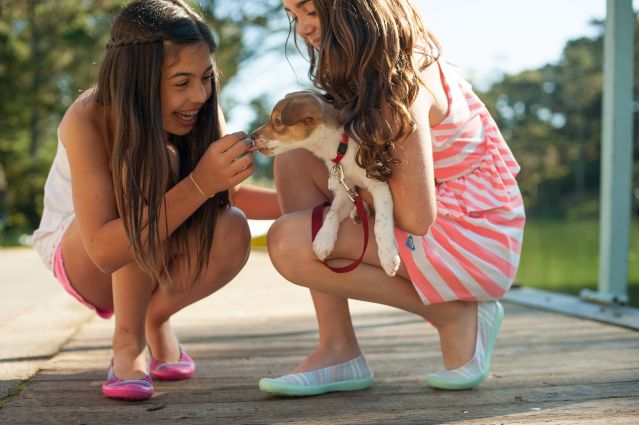Stress
Get the Kids Outside
Help your kids de-stress and become healthier by playing outdoors.
Posted May 9, 2023 Reviewed by Hara Estroff Marano
Key points
- If you want your children to enjoy the outdoors, spend time with them outside. Your enjoyment of outdoor settings will inspire your kids.
- Summer camps, both day and sleepaway, offer youth both structured and unstructured opportunities to experience the outdoors.
- Allowing children to choose their outdoor activities will garner their buy-in and help them enjoy the experience.
- Playing with friends outdoors can help children to develop important social skills, including problem-solving and cooperation.

As summer vacation approaches, many parents are left wondering how to keep their kids entertained and engaged during the long break. One of the best ways to do so is by encouraging kids to spend time outdoors. Not only does being outdoors provide a break from screens and technology, but it also offers a host of physical, mental, and social benefits.
One of the most significant advantages of spending time outdoors is the physical activity that comes with it. With a growing number of children spending hours each day in front of screens, it's more important than ever to encourage kids to get up and move around. Summer camp is one place to ensure that kids spend time outdoors. According to the American Camp Association, "Camp offers a unique combination of planned physical activities, outdoor adventures, and opportunities for free play that promote physical fitness and healthy habits."
In addition to physical health benefits, time spent outdoors also has a positive impact on mental health. Research has shown that exposure to nature can elevate mood, reduce stress and anxiety, and even improve cognitive function. Spending time in nature can help children relax and recharge, which is especially important during times of stress, such as the school year.
Beyond physical and mental health benefits, spending time outdoors can also help children develop important social skills. According to the Association for Experiential Education, "Outdoor education and adventure-based learning have been shown to increase teamwork, communication, and leadership skills." This is because outdoor activities often require collaboration and problem-solving, which can help children build confidence and develop social bonds.
When children spend time outdoors, they are also more likely to interact with peers in a meaningful way. This can be particularly beneficial for children who struggle with social skills, as it offers them a chance to practice communication and build friendships. A study published in the Journal of Environmental Psychology found that "children who spend more time in natural settings with peers experience improved communication and social skills."
Of course, getting children to spend time outdoors can be a challenge, especially when they are used to spending their free time indoors, on screens. Here are a few tips for encouraging kids to get outside:
1. Lead by example: If you want your children to spend time outdoors, you should also make an effort to do so. Plan family outings to the park, go for a hike together, or spend time gardening.
2. Offer choices: Children are more likely to be engaged in activities when they have a say in what they are doing. Offer a few different options for outdoor activities and let your child choose which they want to do.
3. Make it fun: Look for ways to make outdoor time enjoyable, such as planning a scavenger hunt, building a fort, or having a picnic.
4. Limit screen time: Set clear limits on screen time and encourage your child to spend time outdoors instead. This may mean setting up specific times for outdoor play or establishing a rule that screens are allowed only at specific times of day.
Spending time outdoors is crucial for children's physical, mental, and social well-being. By encouraging children to get outside, adults can help kids stay active, reduce stress and anxiety, and build important social skills. With a little effort, outdoor time can be a fun and enjoyable part of any summer vacation. So get your kids outside and enjoy all the benefits that nature has to offer.
References
American Camp Association. (n.d.). The Value of Camp. Retrieved from https://www.acacamps.org/resource-library/camping-magazine/value-camp
Association for Experiential Education. (n.d.). Benefits of Experiential Education. Retrieved from https://www.aee.org/what-is-ee/benefits-of-ee
Fjørtoft, I. (2004). Landscape as playscape: The effects of natural environments on children's play and motor development. Children, Youth and Environments, 14(2), 21-44.
Kuo, F. E., & Taylor, A. F. (2004). A potential natural treatment for attention-deficit/hyperactivity disorder: evidence from a national study. American Journal of Public Health, 94(9), 1580-1586.
Taylor, A. F., Kuo, F. E., & Sullivan, W. C. (2001). Coping with ADD: The surprising connection to green play settings. Environment and Behavior, 33(1), 54-77.
Wells, N. M. (2000). At home with nature: Effects of "greenness" on children's cognitive functioning. Environment and Behavior, 32(6), 775-795.


